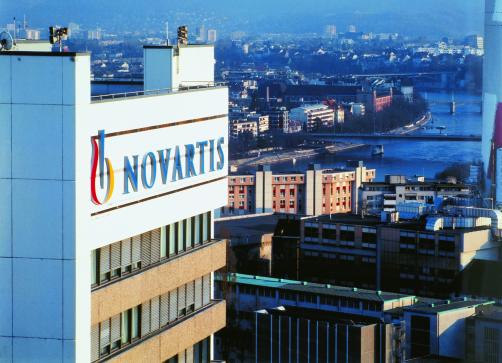
CAR-T treatment is given ‘historic’ first approval by FDA
pharmafile | August 31, 2017 | News story | Research and Development, Sales and Marketing | CAR-T, Kymriah, Novartis, biotech, drugs, pharma, pharmaceutical
Novartis has received approval for its CAR-T treatment of paediatric and young adults with a form of acute lymphoblastic leukaemia (ALL). The approval marks a breakthrough for this type of treatment that reengineers the body’s own immune system to combat cancer and had the FDA referencing its decision as ‘historic’.
It was an approval that was widely expected, after an FDA advisory committee gave the drug the thumbs up but the decision has been arrived at sooner than expected. It means hundreds of patients could be eligible for the treatment immediately.
The FDA’s move to approve Kymriah (tisagenlecleucel) was based on clinical studies where 83% of patients given the treatment achieved complete remission within three months of infusion with the treatment. This high level of success is one of the key reasons that the approval is seen as historic, not least because this type treatment could be expanded to combat other forms of difficult to treat cancer.
Another major part of the reason the treatment is regarded as revolutionary is the complexity of the manufacturing process for the treatment. Each patient has their treatment derived from their body’s own immune T-cells, with the product being manufactured in one of 32 of Novartis’ sites across the US.
The process of creating the therapy is one of the reasons that Novartis has set the price of the treatment at $475,000. This is a major talking point of the treatment; there is currently a debate raging regarding prices of drugs, particularly drugs within oncology, and the price of this CAR-T treatment could definitely add to the discussion.
The price is actually lower than was expected by analysts, who thought it could potentially be within the $600,000 bracket, and Novartis has also promised that if a patient does not see a response within a month that it will not charge for the treatment.
David Mitchell, Founder and President of Patients For Affordable Drugs, released a statement on the announcement: “While Novartis’ decision to set a price at $475,000 per treatment may be seen by some as restraint, we believe it is excessive. Novartis should not get credit for bringing a $475,000 drug to market and claiming they could have charged people a lot more.”
Mitchel also cited the fact that development of the treatment had been funded to the tune of $200 million by US citizens in his case for a lower price. In particular, Mitchell’s organisation said that it would be observing whether, as the number of patients becoming eligible for the treatment increases, the price would come down in time.
It is clear from the way that Novartis have priced the drug that it is cautious about how its pricing will be viewed. The move to tie the cost of the drug to its efficacy in individual patients, for example, is a bold move that others within the CAR-T field will have noted for their own pricing plan. It is something that Gilead, now that it has sealed a deal to purchase Kite, will have observed with interest, especially as it is no stranger to pricing debates.
For Novartis’ part, when it comes to pricing, it has stressed that the price of creating revolutionary new medicine is that products have to be priced in a way to encourage this innovation. In a statement, Joseph Jimenez, CEO, was keen to stress how the treatment changed the area of oncology: “Five years ago, we began collaborating with the University of Pennsylvania and invested in further developing and bringing what we believed would be a paradigm-changing immunocellular therapy to cancer patients in dire need. With the approval of Kymriah, we are once again delivering on our commitment to change the course of cancer care.”
With Kymriah, Novartis is still at the very early stage of changing that course – it is already looking to expand the indications of the drug. It is developing the product for use in lymphoma and is also looking at using other CAR-T therapies in further blood cancers. Behind Novartis, Kite Pharma is also widely expected to receive approval and Juno Therapeutics is also going through the clinic with its own product.
Ben Hargreaves
Related Content

Novartis shares new data about Fabhalta for IgAN treatment
Novartis has announced new results from a pre-specified interim analysis of its phase 3 APPLAUSE-IgAN …

Novartis shares new data for Zolgensma in children with SMA
Novartis has announced new data to continue the support of the clinical benefits of Zolgensma …

Novartis to acquire MorphoSys AG for €2.7bn
Novartis has announced that it has entered an agreement to acquire MorphoSys AG for €2.7bn, …








